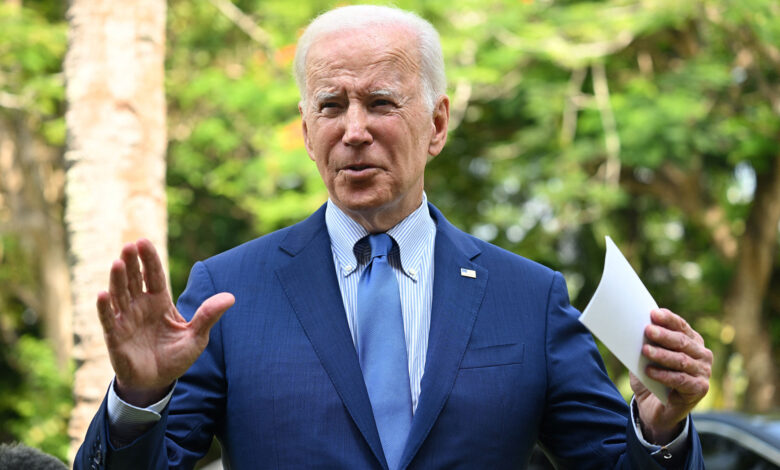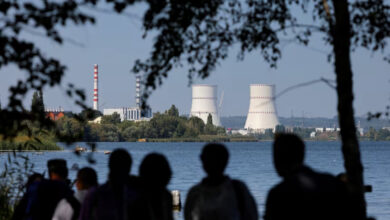
In an interview with Fareed Zakaria aired on July 9th, 2023, US President Joseph Biden made comments that could potentially sketch out his administration’s vision of a realistic scenario that could potentially end the ongoing conflict in Ukraine.
Biden stated that he doesn’t think that “there is unanimity in NATO about whether or not to bring Ukraine into the NATO family now, in the middle of a war.” He explained that since members are committed to defending every inch of NATO territory, if Ukraine is added “we’re all in a war with Russia.” He further clarified that Ukraine is not ready for NATO membership as this requires countries to undergo various transformations “from democratization to a whole range of other issues” and suggested that during this process, which “will take a while,” NATO is prepared to grant Ukraine Israel-like security guarantees, equipping it with the weaponry needed to defend itself.
Biden’s comments, if interpreted correctly, might carry significant implications. It seems that he outlined a scenario that would satisfy Russia’s conditions for peace, which could be summarized as follows: maintaining control over Crimea, which was annexed by Russia in 2014, and parts of Ukraine that Russia took control of post-February 2022, especially in Lugansk, Donetsk, Kherson, and Zaporizhzhia oblasts which Putin now considers part of Russia; no NATO membership for Ukraine; and the denazification and demilitarization of Ukraine.
The last two conditions were stated in Putin’s speech on February 24th, 2022, the day the armed conflict started. In this speech he stated “…in execution of the treaties of friendship and mutual assistance with the Donetsk People’s Republic and the Lugansk People’s Republic, ratified by the Federal Assembly on February 22, I made a decision to carry out a special military operation. The purpose of this operation is to protect people who, for eight years now, have been facing humiliation and genocide perpetrated by the Kiev regime. To this end, we will seek to demilitarise and denazify Ukraine…”
It is quite possible that these two conditions have lost their significance – despite being recently reiterated by Russian officials- as they were initially mentioned in the context of protecting ethnic Russians in both the then-Ukrainian Lugansk and Donetsk oblasts. According to Putin, these individuals faced discrimination, were being stripped of their Russian identity, and had been bombarded by Ukraine since 2014. These threats no longer exist after the annexation.
One implication of Biden’s comments, if read between the lines, might suggest a potential U.S. acceptance (which does not necessarily translate to an official recognition of legitimacy) of the status quo on the ground. He stated that Ukraine cannot be integrated into NATO while it’s engaged in conflict, owing to his solid commitment to safeguarding every inch of NATO territory. This indicates he cannot guarantee protection for Ukraine’s pre-2014 and 2022 borders without risking an undesirable direct conflict with Russia, a situation which, in his own words, would lead to the West being “all at war with Russia.”. It also implies that the primary responsibility for liberating Ukraine’s territory lies with Ukraine itself.
Admittedly, interpreting Biden’s comments involves some degree of speculation, but an in-depth review of two explicit points he made in the interview, and two undeniable realities on the ground may suggest Biden’s awareness of an eventual ‘unofficial tolerance’ for Russia’s new borders to cease the conflict.
He stated that NATO will not accept Ukraine anytime soon, to prevent a direct NATO intervention in the conflict, and that Ukraine will be granted a status akin to Israel’s – which could potentially enhance its defensive capacity, but only after a ceasefire or a peace agreement is signed.
Two realities Biden would have been surely well aware of entering this interview are: firstly, Russia will not relinquish the territories it seized unless Ukraine reclaims them by force, or Putin is replaced by a West-appeasing leader willing to cede these territories via diplomacy. The chances of this happening in the near future are slim. In fact, numerous Western and Russian analysts suggest that even if Putin were to be replaced, there are no guarantees his successor wouldn’t be equally or potentially more hawkish.
Secondly, Ukraine is not progressing on the battlefield. Biden’s remarks came nearly a month after Ukraine officially launched its counteroffensive – a campaign that, according to both Western officials and Ukraine itself, has been slow, challenging, and not meeting expectations. Russia might start its own offensive to seize additional territories. The extent of these territories and whether they will include other areas, such as Kharkov and Odessa, will likely be determined by the outcomes of the ongoing offensives and counter-offensives.
Biden’s statements, coupled with the realities on the ground, render this interpretation plausible with a degree of certainty, as this appears to be his only option if he intends to stop this war at some point in the future and push for a peace agreement.
Interestingly, even if a peace agreement is signed, the lack of official recognition of Russia’s newly annexed regions from both Ukraine and the international community automatically categorizes Ukraine, much like Georgia, as a nation with territorial disputes. This situation further reduces Ukraine’s chances of joining NATO. Javier Colomina, NATO’s special representative for the South Caucasus and Central Asia, underscored this point in a January 2022 interview, stating, ‘…whenever Georgia is ready to access NATO, it will do so, although I don’t think there is a possibility to integrate just one part of Georgia.’ referring to Georgia’s Russian-controlled regions of Abkhazia and South Ossetia.
Ukraine could choose a Georgia-like scenario and continue to request to join NATO – a request that, to date, has largely fallen on deaf ears within the Alliance- or, acknowledging that NATO membership is an unlikely prospect, adopt a neutral stance, and opt for Biden’s guarantees of Israel-like protection against future aggression. This step might be easier with President Zelenskyy out of the picture, potentially through elections that were originally scheduled for spring of 2024 but have been postponed until after the war ends. In both cases the NATO issue should be resolved as far as Russia is concerned.
The US and NATO’s Israel-like status however, will not be easily accepted by the Russians. Despite receiving aid over the past 18 months that is quickly approaching what Israel has received in the past 50 years or more, Ukraine’s success on the ground has been limited.
For context, the aid Israel received over the past 50 years or more as reported by Congressional Research Service report from February 2022 stands at $150 billion (not adjusted for inflation) or $246 billion (adjusted for inflation). A number of military experts attribute this limited success to the lack of time needed for Ukraine to train its forces on all new equipment they have been receiving since the start of the conflict.
They also note that the level of NATO training Ukraine has been receiving since 2014 is not adequate to the scale of the war they are currently.
Therefore, the nature of weaponry and training provided to Ukraine within the Israel-like status deal, once the dust settles, will still be a sensitive topic, as Russia would likely oppose any potential for future threats from Ukraine. Biden’s statement that this status will be granted ‘IF there is an agreement, IF there is a ceasefire, IF there is a peace agreement,’ might imply that the primary goal of this aid is not to escalate the conflict further, but to maintain peace once it is established. The specifics of this assistance will likely be shaped by NATO in accordance with whatever peace agreement is eventually reached between Russia and Ukraine.
In the interim, the annual NATO summit will be held in Vilnius, Lithuania this week. The US and NATO are prepared to provide further support for Ukraine’s counteroffensive. And the world will have to wait for its results for any peace plan to materialize.




